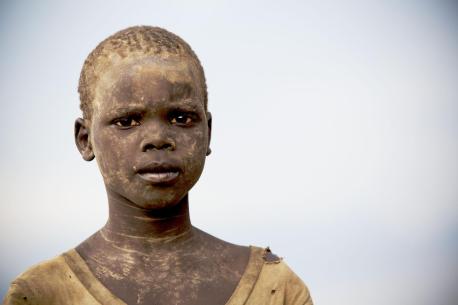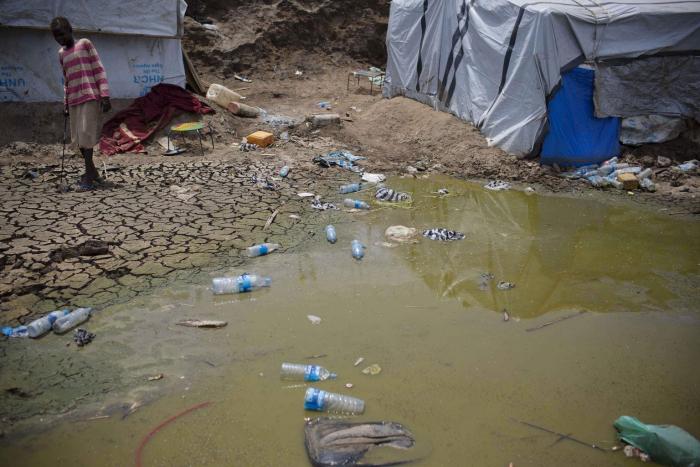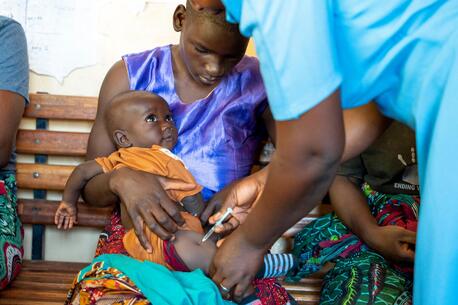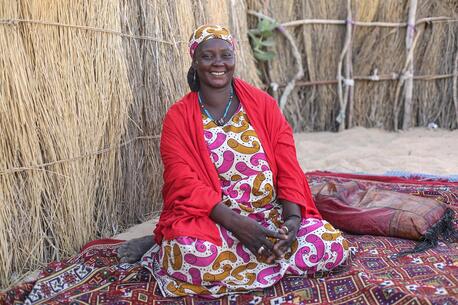
UNICEF Responds to Cholera Outbreak in South Sudan
The disease presents new challenges in a crisis that affects 3.75 million children.
South Sudan has reported 266 cases of cholera and 13 deaths from the disease after an outbreak in late April. The caseload has doubled every day since the first confirmed case in the capital, Juba, with reports of new cases in two more states—Jonglei and Upper Nile.
The cholera outbreak comes as the country faces a food crisis that aid agencies have warned could be worse than the Ethiopian famine of the 1980s. Since the violence broke out in mid-December, food supplies and health services have been severely disrupted. More than 740,000 young children are at risk of food insecurity, putting them at greater risk of contracting cholera and other deadly diseases. The onset of the rainy season has worsened living conditions in camps for displaced people, where millions of South Sudanese have fled. Open sewage and poor sanitation are ideal breeding grounds for disease.
A Children's Emergency
Children were already struggling with basic needs when the conflict began. Without a chance to plant their crops, many families have been unable to secure an adequate food supply. Young children are most vulnerable—UNICEF estimates as many as 50,000 could die of malnutrition.
More than 9,000 children have also been recruited into armed groups over the last five months. Thousands have been separated from their families, and girls are increasingly targets of sexual violence.

A girl walks amid makeshift shelters and dirty water at a displacement camp in Juba.
Protecting Children in South Sudan
UNICEF has helped establish a Cholera Treatment Center at the Juba Teaching Hospital and is providing medical and hygiene equipment, temporary treatment wards and fuel to keep patient centers operating.
To contain the spread of disease, UNICEF is also delivering clean drinking water, oral rehydration salts, diarrheal kits and chlorine, and is training hundreds of health workers and volunteers to spread public health messages.
UNICEF has been on the ground in South Sudan since the conflict began, providing water, sanitation, vaccines and protection to children and their families.


